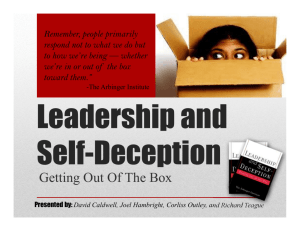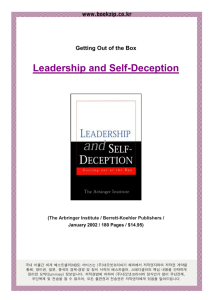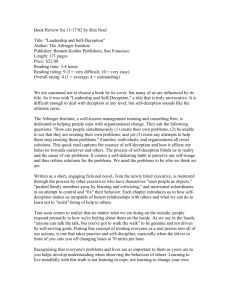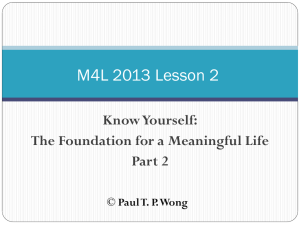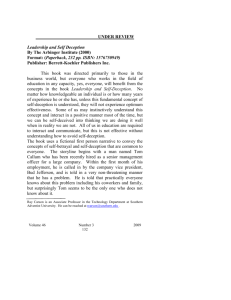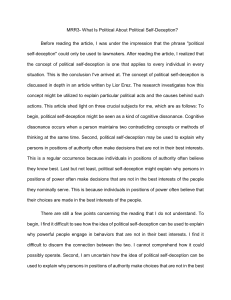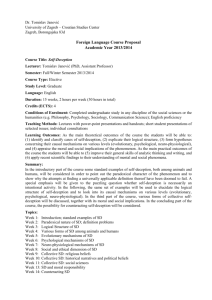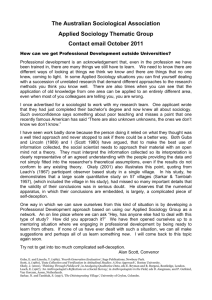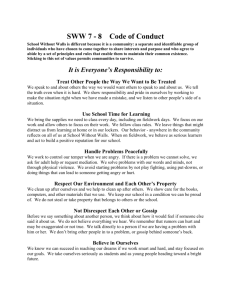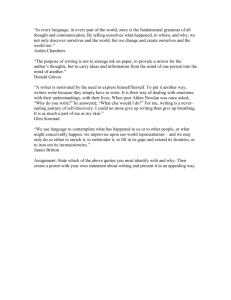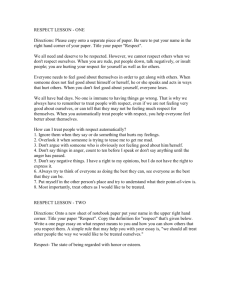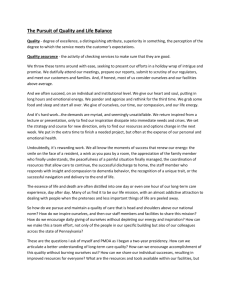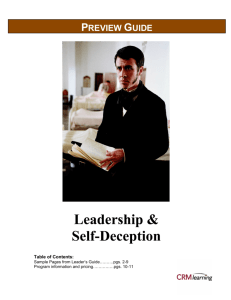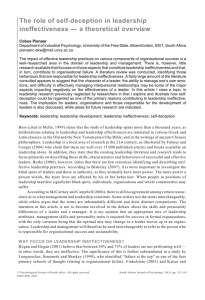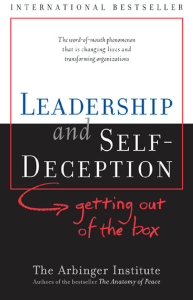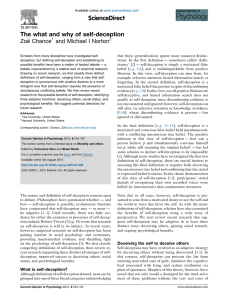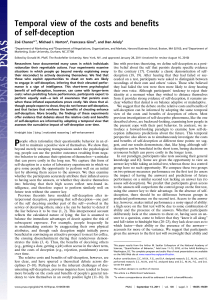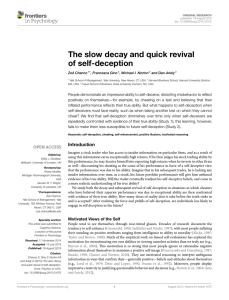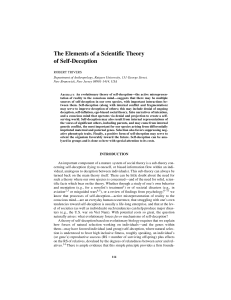Tips for Managers | Ideas from Human Resources
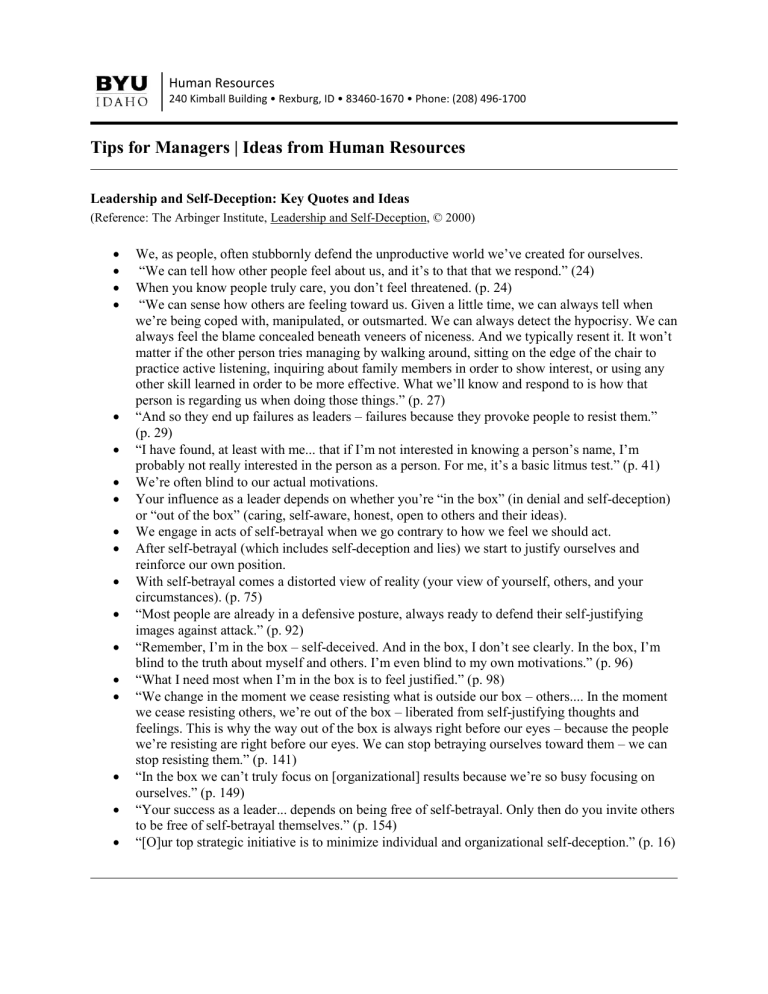
Human Resources
240 Kimball Building • Rexburg, ID • 83460-1670 • Phone: (208) 496-1700
Tips for Managers | Ideas from Human Resources
Leadership and Self-Deception: Key Quotes and Ideas
(Reference: The Arbinger Institute, Leadership and Self-Deception, © 2000)
We, as people, often stubbornly defend the unproductive world we’ve created for ourselves.
“We can tell how other people feel about us, and it’s to that that we respond.” (24)
When you know people truly care, you don’t feel threatened. (p. 24)
“We can sense how others are feeling toward us. Given a little time, we can always tell when we’re being coped with, manipulated, or outsmarted. We can always detect the hypocrisy. We can always feel the blame concealed beneath veneers of niceness. And we typically resent it. It won’t matter if the other person tries managing by walking around, sitting on the edge of the chair to practice active listening, inquiring about family members in order to show interest, or using any other skill learned in order to be more effective. What we’ll know and respond to is how that person is regarding us when doing those things.” (p. 27)
“And so they end up failures as leaders – failures because they provoke people to resist them.”
(p. 29)
“I have found, at least with me... that if I’m not interested in knowing a person’s name, I’m probably not really interested in the person as a person. For me, it’s a basic litmus test.” (p. 41)
We’re often blind to our actual motivations.
Your influence as a leader depends on whether you’re “in the box” (in denial and self-deception) or “out of the box” (caring, self-aware, honest, open to others and their ideas).
We engage in acts of self-betrayal when we go contrary to how we feel we should act.
After self-betrayal (which includes self-deception and lies) we start to justify ourselves and reinforce our own position.
With self-betrayal comes a distorted view of reality (your view of yourself, others, and your circumstances). (p. 75)
“Most people are already in a defensive posture, always ready to defend their self-justifying images against attack.” (p. 92)
“Remember, I’m in the box – self-deceived. And in the box, I don’t see clearly. In the box, I’m blind to the truth about myself and others. I’m even blind to my own motivations.” (p. 96)
“What I need most when I’m in the box is to feel justified.” (p. 98)
“We change in the moment we cease resisting what is outside our box – others.... In the moment we cease resisting others, we’re out of the box – liberated from self-justifying thoughts and feelings. This is why the way out of the box is always right before our eyes – because the people we’re resisting are right before our eyes. We can stop betraying ourselves toward them – we can stop resisting them.” (p. 141)
“In the box we can’t truly focus on [organizational] results because we’re so busy focusing on ourselves.” (p. 149)
“Your success as a leader... depends on being free of self-betrayal. Only then do you invite others to be free of self-betrayal themselves.” (p. 154)
“[O]ur top strategic initiative is to minimize individual and organizational self-deception.” (p. 16)
